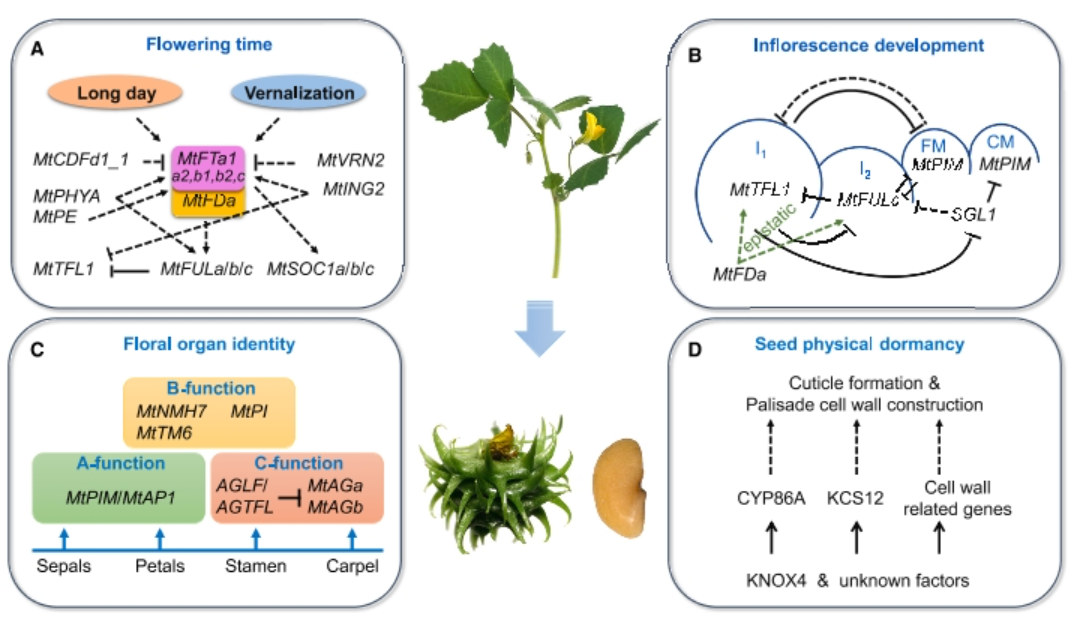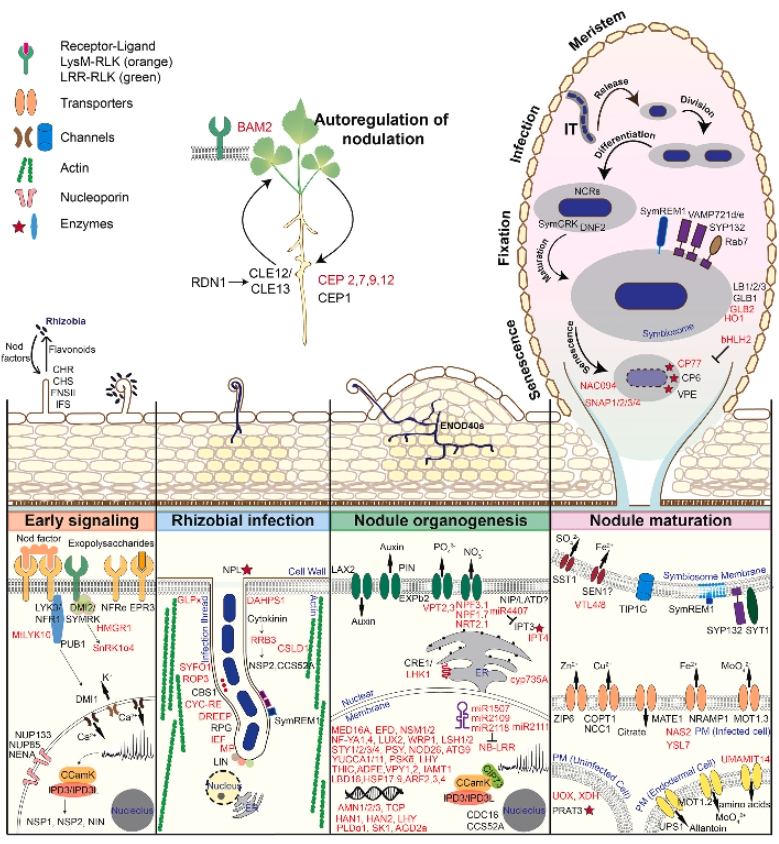Abstract:
Medicago, a genus in the Leguminosae or Fabaceae family, includes the most globally significant forage crops, notably alfalfa (Medicago sativa). Its close diploid relative Medicago truncatula serves as an exemplary model plant for investigating legume growth and development, as well as symbiosis with rhizobia. Over the past decade, advances in Medicago genomics have significantly deepened our understanding of the molecular regulatory mechanisms that underlie various traits. In this review, we comprehensively summarize research progress on Medicago genomics, growth and development (including compound leaf development, shoot branching, flowering time regulation, inflorescence development, floral organ development, and seed dormancy), resistance to abiotic and biotic stresses, and symbiotic nitrogen fixation with rhizobia, as well as molecular breeding. We propose avenues for molecular biology research on Medicago in the coming decade, highlighting those areas that have yet to be investigated or that remain ambiguous.
Key Words:
alfalfa;;functional genomics;;legume model;;Medicago;;molecular breeding;;nodule symbiosis


|